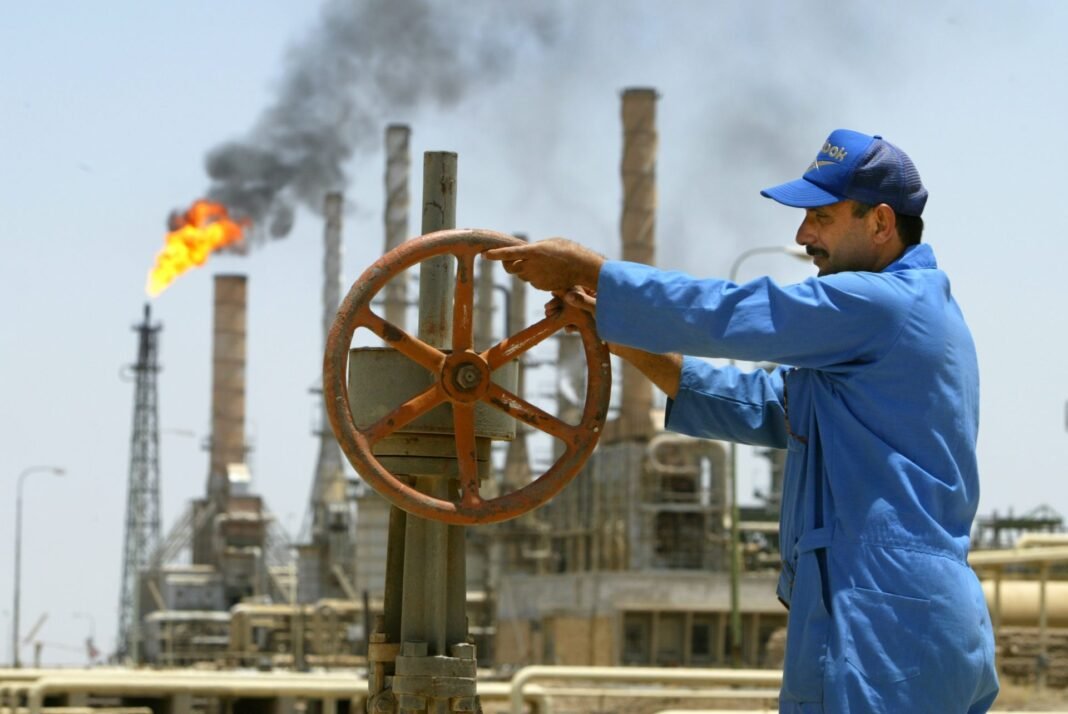Iraqi oil prices fell sharply on Tuesday, reflecting ongoing pressures in global energy markets despite a temporary pause in international crude price declines. The drop came after three consecutive days of losses in global markets, raising fresh concerns among oil producers and traders.
Basrah Heavy crude plunged by $1.91, or 2.76%, settling at $67.37 per barrel. Basrah Medium crude also declined by $1.91, a 2.64% decrease, bringing its price to $70.42 per barrel. These losses highlight renewed volatility in Iraqi oil prices, driven by both external market dynamics and internal production adjustments.
Meanwhile, international oil prices showed signs of stabilization. Brent crude was last reported at $68.76 per barrel, while U.S. West Texas Intermediate (WTI) stood at $66.27. These levels remained relatively unchanged compared to the previous session, indicating a temporary balance between supply and demand.
The recent weakness in Iraqi oil prices can be attributed to several overlapping factors. OPEC+, led by Saudi Arabia and Russia, will boost oil production by 547,000 barrels per day starting in September.
This increase partially reverses the group’s earlier output cuts and adds further supply to an already saturated market.
At the same time, economic signals from major consuming nations are weighing on demand projections. Fears of a U.S. recession and slowing growth in China are pressuring Iraqi oil prices, which are highly sensitive to global demand.
Furthermore, geopolitical risks continue to impact oil markets. Tensions over Russian crude exports and the threat of new U.S. trade tariffs have added layers of unpredictability. U.S. President Donald Trump recently warned of potential 100% tariffs on countries buying Russian oil, including India—currently one of Iraq’s top competitors in Asian energy markets.
Energy analysts suggest that without a clear uptick in global demand or a new round of supply cuts, Iraqi oil prices may face continued downward pressure in the short term. However, if demand recovers or geopolitical events disrupt supply chains, Iraq could see a rebound in pricing.
For now, Iraq’s oil sector must navigate a fragile global market environment while closely monitoring OPEC+ decisions, economic forecasts, and regional trade policies.


